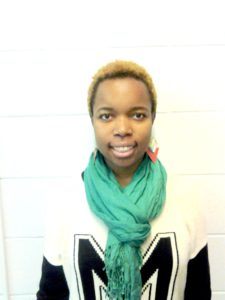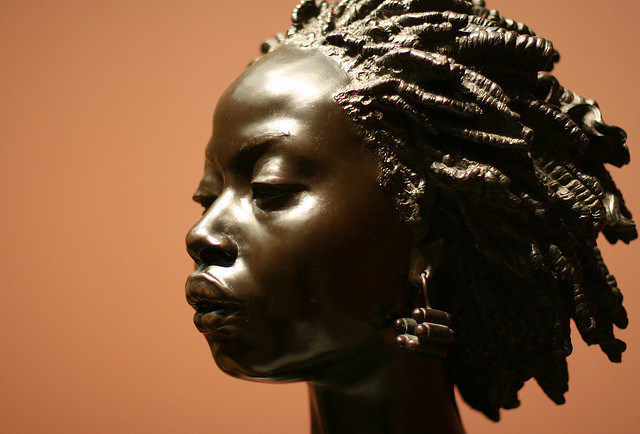
Michelle Strothers, a Sociology major, is in her first year as Assistant Opinion Editor for The Montclarion.
The media has manipulated words to present one style of fashion as risk-taking and the other as forbidden.
Why was Miley Cyrus able to dread her hair, splash colors into it and parade around MTV’s Video Music Awards without ever mentioning that she was attempting to portray funk legend George Clinton?
Is it okay that some present their appropriation as appreciation? Absolutely not.
Many in the media do not understand the strength behind their words. Media outlets use words such as “edgy” to express their approval of celebrities like Kylie Jenner for flaunting dreadlocks and big lips, but continue to condemn women of color for their naturally-locked hair and full lips. For example, E!’s Fashion Police host Giuliana Rancic made a comment that Zendaya Coleman’s deadlocks somehow smelled like “patchouli” or “weed.”
For a long time, I struggled to hide my full lips. It ate away at the love that I knew I should have for myself. The media has shamed me and other African-American women who look similar due to our traditionally larger features. On the other hand, those who undergo plastic surgery to emulate features we naturally have are been praised and called beautiful.
How are African-American women supposed to explain to their daughters that what their hair naturally does is, in fact, not accepted? Young African-American girls should not be told they are appropriating their own culture if they wear a dashiki to show appreciation for African history, especially when they are from African ancestry. African-Americans, or any ethnic group for that matter, should never be told that they are attempting to identify with the ‘watered-down’ history of their homeland. Women should never have to worry that wearing their hair in a natural style will adversely affect the amount of job offers they receive or that their curves will be considered offensive in the work place, but celebrated when shaking it in a music video.
How are African American mothers supposed to tell their children that their culture may be ripped from beneath them and sold to the highest bidder?
Kierna Mayo, the Editor-in-Chief of Ebony, wrote in their August issue that there are “overwhelming reminders that America truly loves what it perceives as Black—from baby oil to butts, collard greens to crunk—but actual Black people? Perhaps not so much.” The cover of the magazine looked like it read “America Loves Black People,” however the last word was scribbled over and instead covered with the word “Culture.” In the end, the August cover ultimately read: “America Loves Black Culture” – not black people.
It is true. American’s perception of what is “trendy,” “edgy,” “urban” or “risk-taking” undercuts many minorities’ culture and heritage. South Asians like Devyani Shekhawat, a contributing writer for New York University’s independent student newspaper, refuses to wear artifacts that represent and celebrate her culture due to the ridicule and name-calling that would follow.
Festivals like Coachella have especially been targeted for the misuse of South Asian bindi beads. Popular American culture has created a connection between traditional representations of culture and costumes. This has lead the disassociation of the true meaning of the cultural representations and has made them only a trend, not a part of someone’s cultural ancestry.
In order to stop the rampant cultural appropriation, Americans must tuck away consumerist thoughts and avoid throwing on a piece of clothing to get a few extra likes on social media. Following fast fashion trends is fun, but it does not have to come at the expense of others. As a society, we must become more culturally aware and find more acceptable ways to celebrate our unique ancestry.



